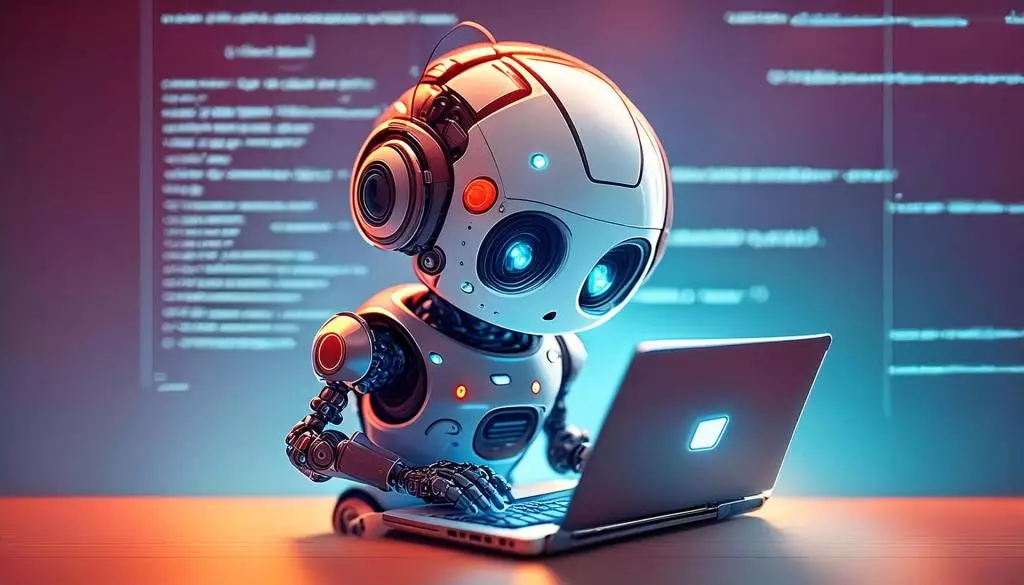In recent months, the landscape of software development has undergone a remarkable transformation, primarily driven by the emergence of AI coding platforms. At the heart of this evolution is a fervent competition among tech giants, particularly Google, which has made significant strides with its autonomous coding agent known as Jules. As the line between human coders and AI blurs, the implications stretch far beyond mere convenience, prompting a reevaluation of how code is written, tested, and maintained.
Jules: Google’s Innovative Leap into Autonomous Coding
Launched as an experimental tool in December, Jules now stands poised in beta mode, ready to revolutionize the coding process by assisting developers in real-time. Google’s Vice President of Labs, Josh Woodward, described Jules as an agent designed to tackle the less appealing aspects of coding—such as debugging and code documentation—thus freeing developers to concentrate on more complex challenges. The agent’s ability to function asynchronously allows it to operate in the background while developers pursue separate tasks. This level of multitasking could significantly accelerate development timelines, positioning Google as not just a participant but a formidable competitor in this burgeoning market.
Jules operates utilizing the advanced Google Gemini 2.5 Pro, integrating seamlessly within platforms like GitHub, thereby enhancing its appeal to a vast audience of developers. By providing features such as audio summaries and task visualizations, Jules isn’t merely a digital assistant; it’s redefining the very essence of coding workflow. Yet, notwithstanding its promise, the landscape is crowded with alternatives, notably OpenAI’s Codex and GitHub’s Copilot, each vying for dominance in what is shaping up to be an intense arms race in AI technologies.
The Asynchronous Coding Revolution: Codex and Beyond
OpenAI’s Codex, which has evolved from a pioneering code generation model to a fully-fledged coding agent, exemplifies the advancements in this domain. Initially a tool designed solely for code completion, Codex has developed capabilities to autonomously write, debug, and respond to inquiries regarding codebases. The power of Codex lies not only in its functionality but also in its ability to operate independently in a sandbox, much like Jules. This comparative flexibility speaks volumes about the potential for future coding paradigms.
With companies like GitHub entering the fray with their own variants, such as the GitHub Copilot Agent, we witness a paradigm shift where the traditional coding model is being challenged. The focus is not merely on automation but on creating an ecosystem where human creativity is augmented by AI. This culture of “vibe coding,” wherein applications are generated by prompting rather than writing code line-by-line, raises important questions about the future of software craftsmanship and the role of human developers.
The Role of Big Tech: Driving Innovation Forward
The active participation of tech behemoths like Google and OpenAI in the AI coding arena signals a compelling shift in innovation efforts. Beyond Jules, Google has cultivated a diverse suite of AI development tools, including Firebase and Code Assist, designed to empower both seasoned developers and novices alike. Firebase, in particular, distinguishes itself by democratizing app development, enabling individuals without coding backgrounds to create applications infused with AI features. This accessibility acts as a catalyst for broader engagement in tech, inviting fresh ideas into the ecosystem.
As these tools evolve, they not only streamline development but also encourage experimentation and learning. The notion that anyone can engage with AI to create functioning applications heralds a new era in tech, where expertise is less about knowing every intricacy of coding and more about harnessing the capabilities of advanced algorithms and user-friendly interfaces.
Social Implications: The Buzz of Change
The excitement around AI coding agents is palpable on social media and tech forums, where discussions about their potential seem to take on a life of their own. While some purists express concerns about the loss of traditional coding skills, many others celebrate the possibilities that these advancements bring. Reinventing how we approach software development can lead to more efficient processes and potentially more innovative outcomes.
The dynamics at play in this race are not just technical; they are shaping the very fabric of the tech community. As developers adapt to these changes, the landscape is ripe for exploration, innovation, and perhaps even a reevaluation of career paths in programming. The question remains not if AI will take over coding, but how it will transform the roles of those who have dedicated their lives to the craft. The rise of coding assistants signifies a moment of profound potential, merging human ingenuity with the power of artificial intelligence in way that could redefine the future of software engineering.

